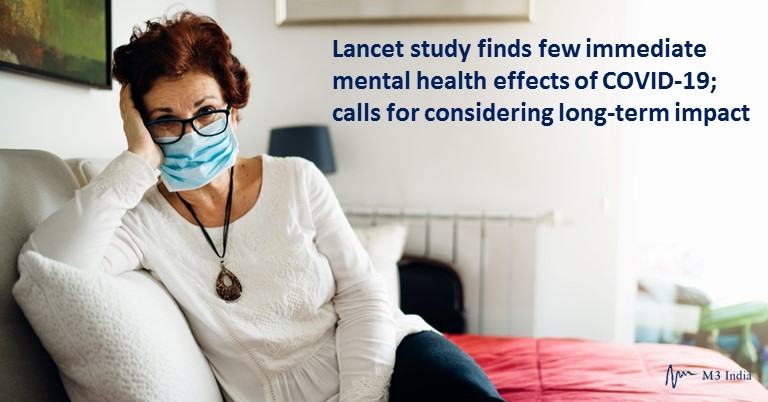COVID-19 has impacted on the health and well-being of people in innumerable ways. As the contagion spreads with unexpected rapidity in many countries, there has been a growing recognition of the psychiatric implications of the disease. Researchers who tried to unravel them in COVID-19 patients found few immediate mental health effects of COVID-19, but longer-term impact must be considered. They reported the study in The Lancet Psychiatry on May 18, 2020.
For our comprehensive coverage and latest updates on COVID-19 click here.

Researchers explained that some common viral diseases are known to infect the Central Nervous System (CNS), causing neuropsychiatric syndromes affecting cognitive, affective, behavioural, and perceptual domains. “Severe illness of diverse aetiologies is associated with subsequent psychiatric morbidity, at least some of which is attributable to its psychological impact of trauma”, they clarified.
Coronaviruses are single-stranded RNA viruses; scientists have identified several subtypes affecting humans. Most of them cause mild upper respiratory tract infections in individuals with intact immune system. Researchers have also detected coronaviruses in both the brain and the cerebrospinal fluid of individuals with seizures, encephalitis, and encephalomyelitis. In 2002, novel strains of coronavirus caused the severe acute respiratory syndrome (SARS) outbreak, and in 2012 the Middle East Respiratory Syndrome (MERS) outbreak.

